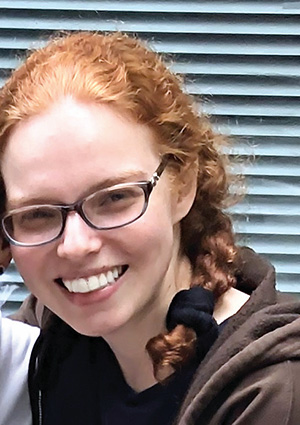


People today check websites to get recommendations for everyone from household help to physicians. Two graduates of Stern College started a website to help newly engaged young women find a very important person: a compatible kallah teacher. Both women talked about why and how they developed the website in separate phone interviews.
Michal Schechter and Shira Leff Kreitman, two friends since elementary school, started mykallahteacher.com in 2016, following their graduation from Stern, after Shira became engaged and had an unhappy experience with her kallah teacher, as did several of their friends. “I knew very little and didn’t have a lot of people to ask,” said Kreitman. “Michal supported me the whole time.”
A kallah teacher’s job is to give a young woman the information she needs to start life with her new husband when the wedding party ends. The starting point is the halacha of intimacy. But those laws, and other issues surrounding marriage, are taught differently depending on the teacher. “Everyone is looking for something different,” Schechter said. “Some are looking for warm and fuzzy, others aren’t. But they don’t talk about it to each other because it’s a little taboo. Just because you know someone who is a kallah teacher, it doesn’t mean she’s a good fit for you. Personality goes into this.” Kreitman added that some women want a a more “tell me why” textual approach and some want a warm, emotional perspective with the spirit and feeling of the law. Style also matters. Women have preferences for either one-on-one meetings or groups, either with lots of conversation or mainly lectures.
Teachers can also vary from being distant, hinting at the nuts and bolts but not talking about how to get the job done, to controlling, telling kallahs they don’t need any other sources of information. Some hesitate to talk about how to communicate in a marriage while others insert themselves into a couple’s relationship in a way that can cause friction.
Schechter and Kreitman thought very carefully about how to structure a website that would accomplish the goal of providing women with information while avoiding lashon hara or negative consequences. “We didn’t want to start smear campaigns,” said Schechter. “We don’t want anyone to search a name and come up with negatives.”
They developed the website together, with Kreitman, a technology specialist, handling the logistics of the site, and Schechter handling all communications. A woman who requests an evaluation first has to submit proof of her engagement, such as a wedding invitation or published announcement. After viewing the list of teachers on the site by location, she can request evaluations for a selected name.
Evaluations are submitted by women who have had classes with a teacher. They rate satisfaction with their teacher’s approach to aspects of the classes from lowest to highest, on a scale of 1-5. Areas ranked include these statements: “My kallah teacher relied heavily on primary textual sources (Gemara and/or Rishonim, Acharonim, and modern day poskim),” “I felt there was hashkafa (i.e., general philosophy and Torah perspective about the topic) embedded in my classes,” “I felt there was an emphasis on explaining the background to the bottom-line halacha,” “I felt that my kallah teacher was available for questions during my classes (before marriage),” “I felt that my kallah teacher was available for questions after my marriage.” The form also solicits comments about a teacher’s approach to discussing intimacy, and the submitter’s overall experience.
Mykallahteacher.com recently added charts showing respondents’ satisfaction with their teachers. “I was surprised at how many (about 90%) had positive experiences,” Kreitman said. But the charts show the areas in which some women were not completely satisfied with what, or how, they had been taught. Kreitman said she has gotten requests from social service agencies for their data but it is strictly proprietary and will not be shared.
One of the most problematic areas discussed in evaluations is the hesitancy of teachers to talk about intimacy in explicit terms. Only 65% of respondents said their teacher’s approach to intimacy was excellent. “Women are getting married in their early 20s knowing so little and need sex education,” said Kreitman. “A kallah teacher is a confidante, and has a pivotal role between the limited information taught in school and the beauty of intimacy.”
One awkward aspect of the relationship between a kallah and her teacher is cost, and how much time the teacher will commit to her student. There are no standards. Some teachers charge by the session, and others set a fee. That can impact how available a teacher is for questions while the classes are ongoing and after the marriage. Some women are disappointed when the teacher feels her job ends with the wedding. There are no questions about costs on the survey but Schecter thinks a site like this will make both students and teachers more responsible towards each other.
Kreitman, who is married with two children, made aliyah shortly after graduation. Schechter is now a busy medical student. Working on the project together, in the midst of their busy, long-distance lives, means they can’t expand or fine tune the site as quickly as they would like. Kreitman said she would like to start a blog, do some fundraising to help with expenses and get more teachers on the site. But they are pleased with their efforts and the response so far. “It’s been really fulfilling and we’re getting great feedback,” said Schechter.
By Bracha Schwartz
�









